Services List
Choosing the right sales and CRM platform is foundational to the success of your business. This page compares two of the top-rated CRM platforms — HubSpot and Salesforce — to help you choose the platform that’s right for you.
Ready to see the power of HubSpot’s sales CRM? Talk to sales for a demo.
 While there are many CRM options on the market, HubSpot and Salesforce are consistently rated the top CRM platforms. Both platforms provide large sales teams with a robust solution that can scale with growth. However, the differences start to emerge when you look at how both platforms were built, and how that foundation contributes to ease of use and adoption. This page will help you understand the differences between HubSpot and Salesforce, so you can choose the right CRM for growing your business.
While there are many CRM options on the market, HubSpot and Salesforce are consistently rated the top CRM platforms. Both platforms provide large sales teams with a robust solution that can scale with growth. However, the differences start to emerge when you look at how both platforms were built, and how that foundation contributes to ease of use and adoption. This page will help you understand the differences between HubSpot and Salesforce, so you can choose the right CRM for growing your business.
Quick Links:
What does HubSpot do?
HubSpot is a cloud-based customer relationship management (CRM) platform that helps scaling businesses grow better with sales, service, marketing, and content management software. It provides a single source of truth that empowers your front office teams to deepen their relationships with customers and provide a best-in-class experience. HubSpot was built in-house on one code base, which means you get a unified experience that’s easier for your team to adopt and use.
What does Salesforce do?
Salesforce is a cloud-based customer relationship management (CRM) platform with applications for sales, service, marketing and more that help bring customers and companies together. Salesforce was built together through acquisitions which means the experience and connections can be different depending on the products you’re using. Because of that, Salesforce may present a steeper learning curve and require more admin resources or more budget to get systems working together.
An Overview of Hubspot Sales
Hub Sales Hub is built within HubSpot’s all-on-one CRM platform. It includes custom objects, sales engagement software, CPQ tools, conversation intelligence, and powerful sales analytics to help teams work more efficiently, save time, and grow revenue. HubSpot's CRM platform is easy to adopt, helps you easily align your teams, and makes it easy to adapt to any business challenge.
An Overview of Salesforce Sales Cloud
Sales Cloud is an all-in-one sales CRM that brings together sales automation tools, reporting, deal management, and more.
Sales Cloud enables businesses to manage leads, track progress, and automate sales processes.
Pricing
To help you understand the difference in the total cost of ownership between HubSpot and Salesforce, let’s break down the common expenses.
Differences Between Paying for Seats
HubSpot includes all the features you need in its advertised price, and you only pay for additional revenue-generating sales seats. Free seats are available for team members who need visibility into the business, such as reporting, without any of the day-to-day functionality of sales tools. Learn more about the value of HubSpot’s free seats.
Salesforce charges for every user and requires paid add-ons for essential features. Aligning your marketing and sales teams, giving executives visibility into reporting, or even letting your reps operate in a shared inbox is going to cost extra. See a breakdown of additional costs for marketing software here.
Sales Software Costs for a Team of 50
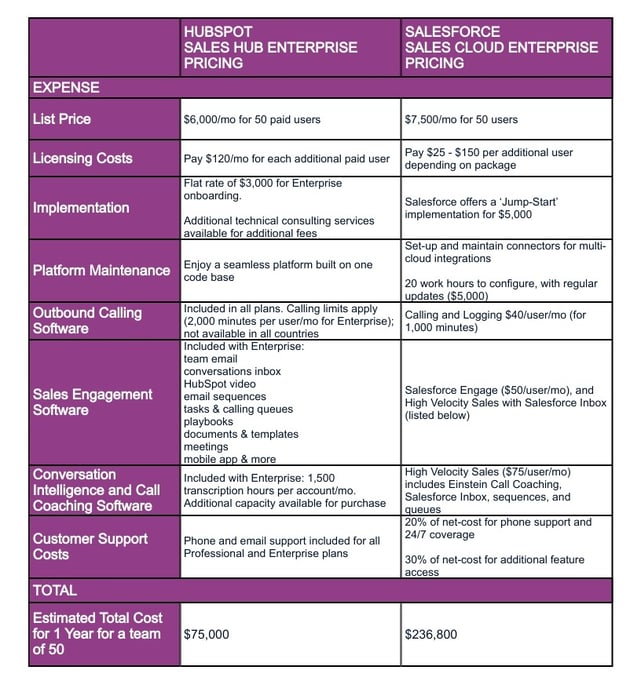
Capabilities
Your CRM is the foundation of your sales process. It should keep you organized, increase efficiency, give leadership clear direction on how to grow revenue, and scale with your growth. See how HubSpot and Salesforce compare across some of the most critical CRM capabilities.
Total Control and Flexibility
HubSpot is uniquely dedicated to ease-of-use and simplicity for admins, reps, and managers. This way, you spend less time (and money) getting your CRM system to work the way you want it to. Customers have the freedom to organise and administer their CRM without the need to hire a dedicated admin. Need a more sophisticated approach? Use custom objects to architect your CRM in a flexible, intuitive way for your business, and seamlessly import crucial third party data into your CRM. We made our pricing suitable for businesses without an unlimited budget.
Salesforce implementation and maintenance requires experienced and well-trained administrators. Most Salesforce customers need to bring in a consulting agency (source), hire one or more full-time admins (with an average salary of $77,503 according to Glassdoor), or have current employees become Salesforce administrators.
“HubSpot is a refreshing change from Salesforce and MS Dynamics. The user interface is clean, polished, straightforward, and easy to learn. It is nice to have a place where sales and marketing data and notes can be stored in a seamless way. You also have all the essential tools for accelerating and automating repetitive tasks: email templates, automated outreach sequences, automated meeting scheduling, engagement tracking, and a dependable mobile app. Best of all, HubSpot can be administered in-house without third-party developers or consultants. Less than a year in, we've got buy-in from the entire team and we've armed our sales directors with real data and dashboards to use for managing the growth.” - Brandon Stewart, Marketing Content Manager at Hamilton Company, Biotechnology, Mid-Market (501-1,000 emp.)
“We switched to HubSpot about 3 years ago. Salesforce was just too difficult to make do what we want without pricey consultants, whereas HubSpot was easy and intuitive out of the box. It is so much cheaper and easier to use than Salesforce, which means people actually use it!” - Beth Morgan COO at TrueData, IT & Services, SMB (11- 50 emp.)
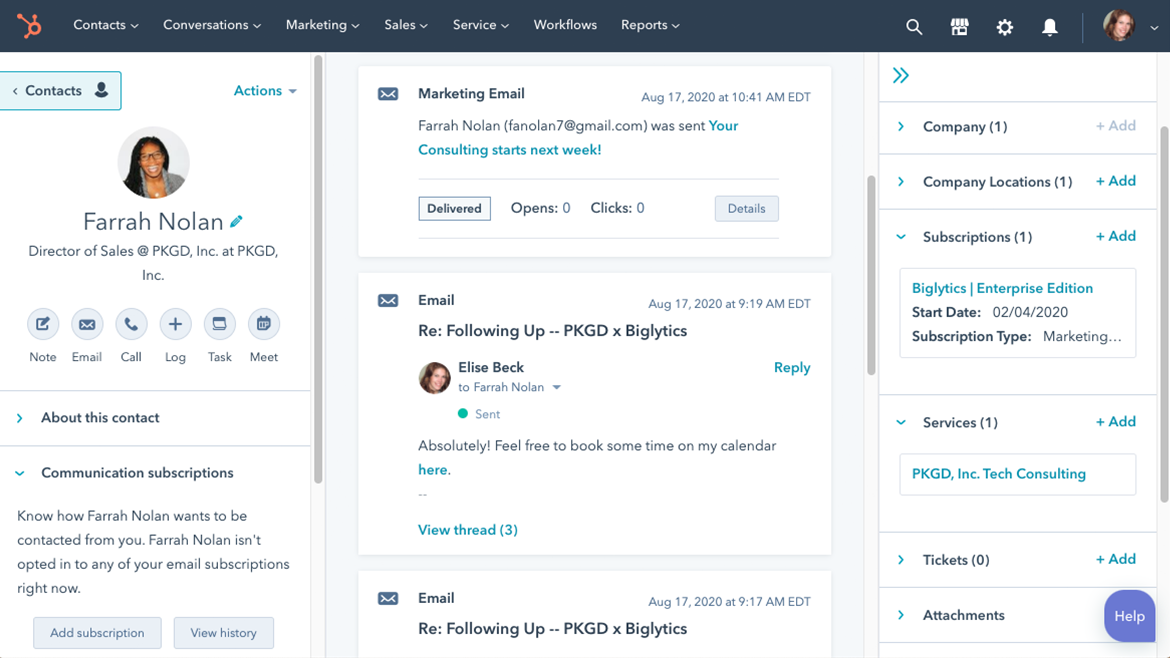
Power and Functionality
HubSpot CRM combines a consumer grade user experience with enterprise power. Sales Hub delivers on contact management, sales analytics, sales automation, pipeline management, and much more. Sales Hub products are trusted by thousands of growing mid-market B2B companies, enterprise brands, and high-growth unicorns to scale with them as they grow.
Salesforce offers endless customisation for businesses that have enough admins and developers to set up complex processes. They include top-of-the-line contact management, dashboards, analytics, pipeline management, sales automation, forecasting, and much more. You’ll get a wide range of powerful products for businesses of all sizes.
Both HubSpot and Salesforce offer the most powerful, complete tools for sales teams on the market.
“People are often resistant to change … but the difference between Salesforce and HubSpot is night and day. It’s like switching from Windows 95 to the modern era … the sales team can log in to HubSpot and see all the information all in one place … they can conduct their next move, right there, inside of HubSpot, or have that page open when emailing leads. It’s our source of truth for contacts, companies, and deals … Today, sales and marketing are much more aware of what the other side is doing,” says Nathan Innis of Novus. See why Novus switched to HubSpot.
“HubSpot is powerful...Having all the sales tools and marketing tools in one place is awesome for our sales team....I like segmenting customers by their behavior to map out progress through the buyer's journey. But the biggest thing is that it's a very powerful suite of tools that is easy for our sales reps to take advantage of. We use things like sequences and vidyard all the time. I can customize the CRM to force compliance of our sales process too.” - Mike Wille, CRO at Localfluence, Marketing & Advertising, SMB (11-50 emp.)
"I have used both Salesforce and HubSpot and I can see the best feature out of both platforms is the email sequence feature HubSpot offers. It allows me to set up a sequence of intro and follow up emails and lets me set and forget. The biggest flaw for most people in sales is following up, this lets you set and forget while getting results. I prefer HubSpot over any other CRM that I have used, including Salesforce." - Kyle Parcell, Account Manager at Cybba, IT, Mid-Market (51 -1,000 emp.)
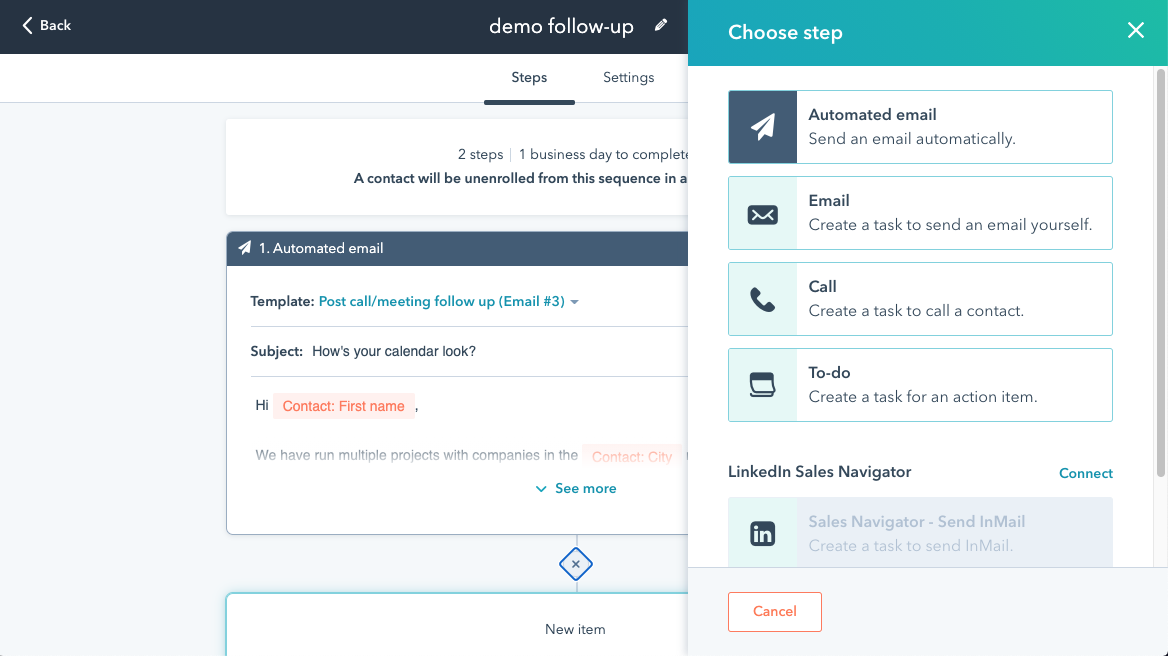
Ease of Use and Adoption
HubSpot features an elegant user experience that's optimised for the things customer people do every day. By combining powerful features with intuitive UX, HubSpot is loved by admins and end-users alike. And it’s why HubSpot is consistently ranked the most user-friendly CRM and B2B software (source), with rep adoption often cited as a key benefit among HubSpot users. As a result, customers making the switch to HubSpot often see an improvement in their data quality. When paired with HubSpot’s powerful reporting and automation features, high-quality data gives admins greater visibility into the overall health of their business.
Salesforce is incredibly powerful with robust reporting that’s endlessly customisable. This customisation can take time to implement and require training to master. G2 crowd users ranked HubSpot above Salesforce in ease of setup and admin (source).
HubSpot and Salesforce both offer powerful tools for scaling businesses. But what good is power if the tools are hard to learn, understand, and put to use? A great CRM should be easy-to-use and loved by all.
“Don't let your users today influence your decision. I had a team of seasoned sales rep very comfortable with Salesforce and adamant that this was a bad move. After three months they started to see the benefits and now more than two years later they still finding things they love about HubSpot and it is truly allowing them to do more with less time." Ashley Neu, Director of Sales and Marketing at Phoenix TS, Contractor Training, Mid-Market (51 -1,000 emp.)
"I find myself logging everything in HubSpot, when I could not even bear to do so in SFDC. It really does depend on your organization and size. Hubspot is a brilliant smart choice for most organisations who want to get quick results from their sales and marketing teams with minimal fuss." Stephen Serrem, Regional Sales Manager at PeopleDoc, IT & Services, Mid-Market (51 - 1,000 emp.)
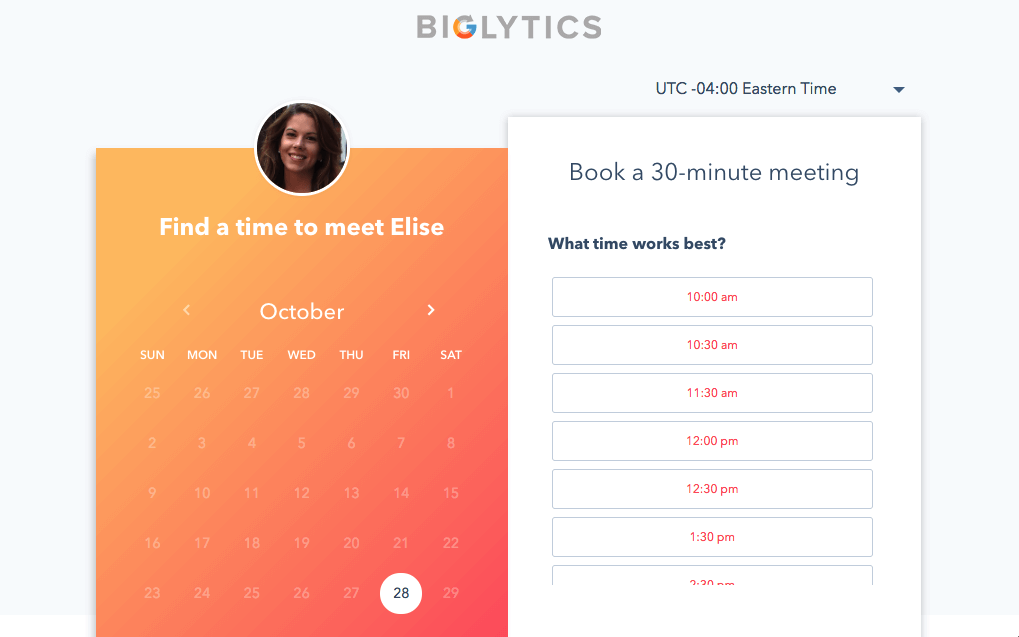
All-in-one Platform
HubSpot’s CRM Platform and supporting Sales, Marketing, Content Management & Service Hubs have all been built by HubSpot from the ground up. The result is a unified and consistent user experience where data, reporting, and individual tools are all similar and work in concert with each other.
Salesforce offers more products and tools, but their breadth can come at the cost of usability and maintenance. Their platform has grown through acquisitions such as Pardot, which can create a less integrated user experience for customers. When your systems are less integrated together, your data, channels, and teams become disjointed. The result is that your customer experience may suffer.
HubSpot and Salesforce are CRM platforms. They both offer a CRM along with all the tools your front office teams need including sales, marketing, content management, and service tools. But they were built differently. Choosing an all-on-one CRM for your teams to use will not only unite your work and data, but also create a better end-to-end customer experience.
“The best part is being able to have all the information we need for marketing, sales, and customer management under one platform which was relatively simple to implement and onboard. We transitioned from Salesforce to HubSpot and it really made our lives simpler. Before we had to do a lot of manual passing of data between sales team and marketing. When our annual renewal for Salesforce came up we were happy to switch. Plus much better customer service.” - Alex Chamberlain, Marketing Team Manager at ERA Environmental Management Solutions, Environmental Services, Mid-Market (501-1,000 emp.)
"We were left to rely on third parties to support our marketing and sales efforts and used our CRM as a fancy rolodex for the sales team. Everything changed the day we signed our HubSpot contract. Transitioning systems took little to almost no effort and within two months we had full team adoption of the new system. We were able to bring all the marketing support in-house without adding to our team’s capacity and for the first time we could manage and measure the end-to-end customer journey across all our paid and organic marketing channels and follow them through the sales process. With a system that makes it so easy for us to manage an integrated sales and marketing strategy we are now able to look at more complex, ‘higher level’ strategies and channels with the support of all the HubSpot tools, training and support materials available." - Erin Shepherd. ROBO Global, Financial Services, Head of Global Marketing, SMB (11 - 50 emp.)
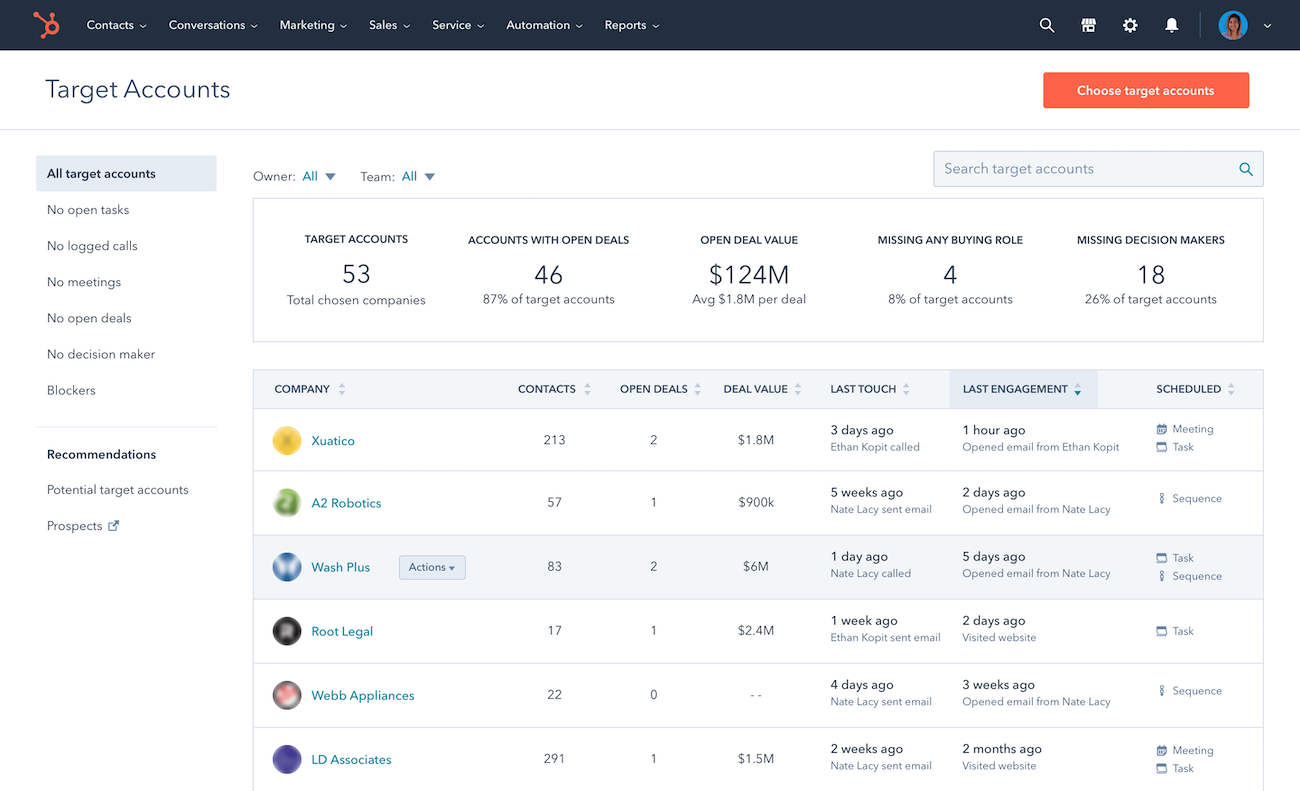
Scale and Customisation
HubSpot doesn't sacrifice power for usability. Customise it to meet your business needs without adding complexity, and scale up gracefully, without months of custom dev work. HubSpot offers a flexible data structure for your CRM with custom objects, so custom implementations are a breeze. You can stay agile as you scale, adapting easily to whatever the world throws at you.
Salesforce offers endless customisation for the most complex organisations. But CRMs that are less integrated get clunky the more users, data, and processes you add. It slows you down just when you need to speed up. This level of customisation allows for nuanced forecasting and reporting dashboards. However, these features may require more admin support and developer resources, which can make it difficult for businesses to change and adapt their Salesforce instance over time.
HubSpot and Salesforce both offer powerful software for fast-scaling businesses. As a business evolves, it’s important for your CRM to be able to grow and change with your business needs. With this in mind, having the flexibility and control to customise your CRM is critical. See why and how HubSpot's Global Sales team moved fully off of Salesforce CRM to be 100% on HubSpot CRM Platform.
“Sales Hub is straightforward enough that my sales team (who are newer HubSpot users) can get value out of it easily, and the customisation options are flexible enough that I can create really sophisticated, custom campaigns for demand gen... I've also switched my sales team from using Salesforce to using HubSpot almost exclusively because the deal tracking feature is so much easier to use….HubSpot aggregates a feed on each type of record so you can see the complete history of that person, company, or deal - including website visits, email engagement, ad engagement you name it.” - Olivia Watson, Marketing and Business Development Manager at Sense360, Market Research, SMB (11 - 50 employees)
Ecosystem
HubSpot’s App Marketplace takes the same approach to third party integrations as it does its own software – focusing heavily on power, ease-of-use, and quality. Installing and configuring integrations via the marketplace is simple with over 500 apps and integrations, many of which are native (HubSpot-built) integrations.
Salesforce’s AppExchange is the largest and broadest CRM app marketplace, offering a wide variety of options for different requirements. AppExchange is the fast and easy way to extend Salesforce with over 3 400 apps and integrations.
HubSpot and Salesforce both offer excellent add-on functionality through a robust app ecosystem. Both offer open APIs and developer tools to help you cater your CRM to your company.
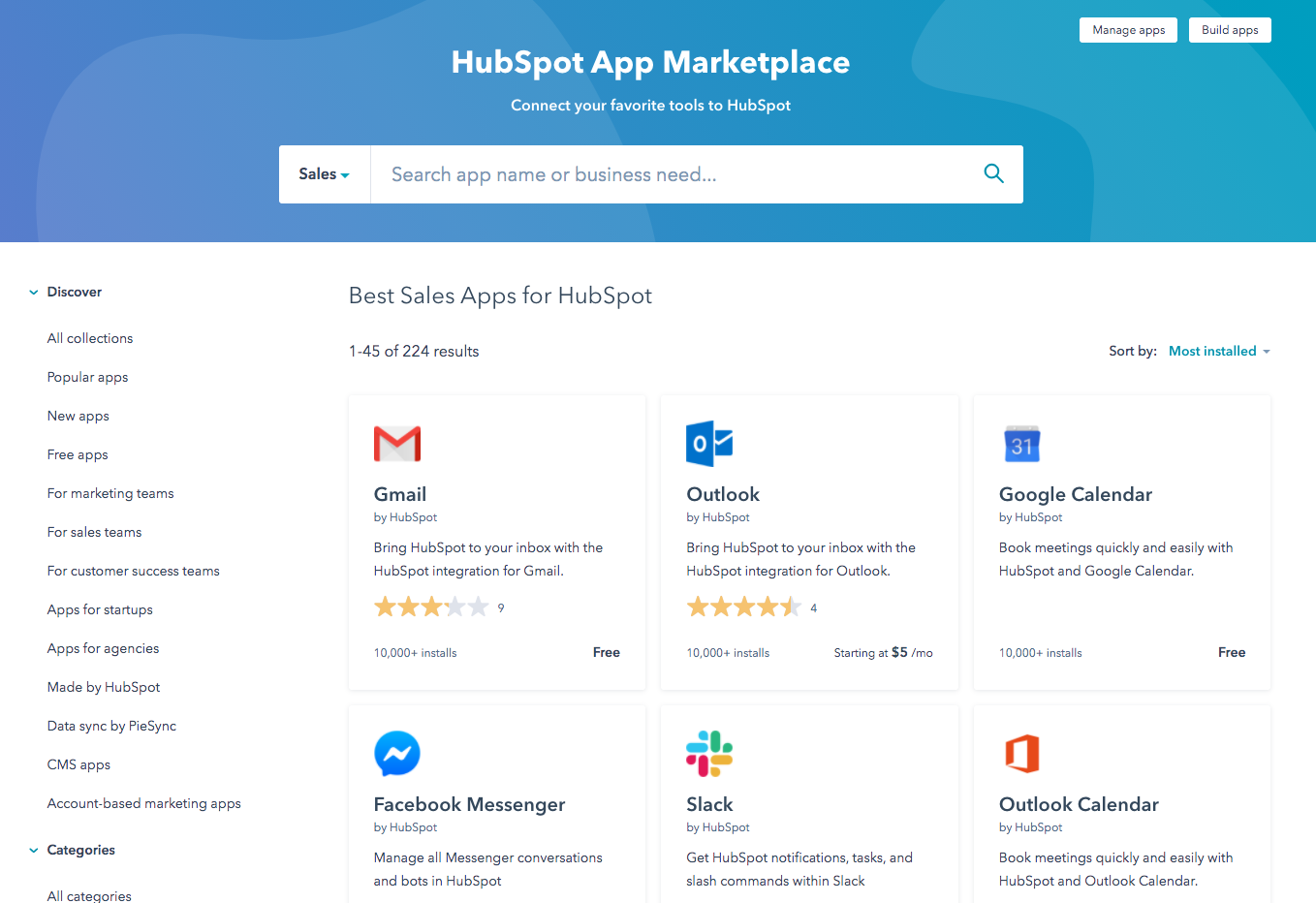
Support That Scales With You
HubSpot is invested in your success from day one. Their world-class support and customer success teams are available to all customers– with phone and email support at no extra charge for Pro and Enterprise customers– and you won’t pay more for it as you grow. HubSpot Academy, consistently ranked as one of the top online learning platforms in the world (source), is also available for free right at your fingertips.
Salesforce charges 20% of your net contract price for 24/7 premier support, while additional feature access costs 30% of your net contract price. With percentage pricing as you spend more on additional seats and add-on features, you’ll have to pay more for the same support. When choosing a Salesforce support plan, you’ll want to carefully forecast how much your team will need.
Source: Hubspot; Salesforce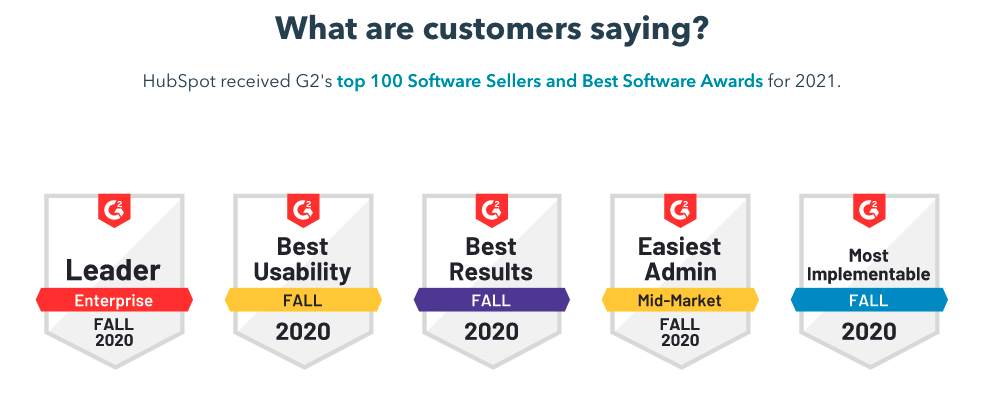
HubSpot is trusted by over 113,000 businesses in more than 120 countries.
Get Future Proof - Get Hubspot



